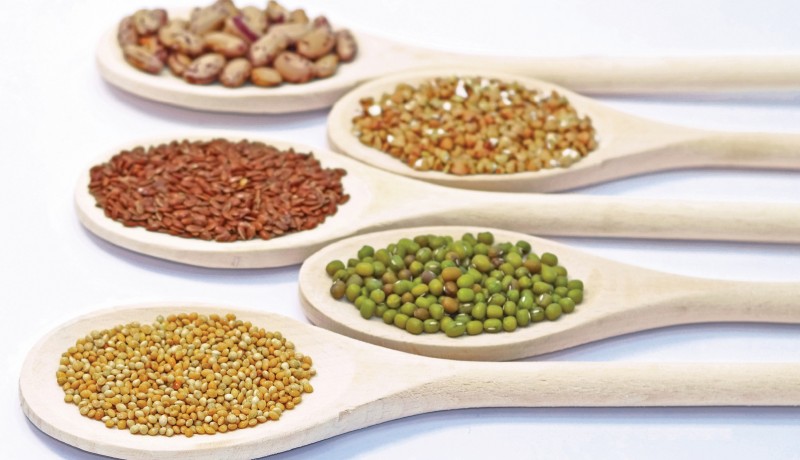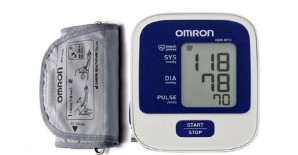
Health

Wellness consultant Naini Setalvad lists foods to keep arthritis at bay
There are almost 100 types of arthritis, the two most common being osteoarthritis and rheumatoid arthritis. While osteoarthritis affects the weight-bearing joints like the spine, hip, and knee, rheumatoid arthritis strikes at the hands, wrists and feet, and affects women at a much younger age than men. This is owing to hormonal changes especially after pregnancy or around menopause. It’s interesting to note that osteoarthritis strikes women after 55 but men before that; however, the percentage of women affected is higher than men. This is because of women’s body shape—their hips are wider than the knees, thus not aligned as straight as men’s.
With age, wear and tear of the cartilage takes place that triggers pain in the elbows, knees, hips and shoulders. Morning stiffness, swelling and tenderness of joints and redness around them, and difficulty in movement are some general symptoms of this autoimmune disease, especially for the elderly.
The causes
Genetics play a vital role for women and so do hormones, especially after menopause when the oestrogen level falls. A sedentary lifestyle, long hours of sitting, lack of sunlight, environmental pollution, obesity, chemicals in food, processed foods, white flour, sugar, aerated drinks, steroids and overall diet contribute to arthritis.
Indeed, diet plays a major role. Some foods are safe to have. Better still, there are foods that can actually ease your symptoms and improve quality of life. Luckily, such foods are part of the Indian diet. Conversely, there are foods that trigger arthritis and should be avoided. You can experiment for three months by slowly adding foods that relieve pain and eliminating the ones that cause it.
Safe foods
- Vegetables: The entire gourd family—from bottle gourd to bitter gourd and pumpkin—French beans, cluster beans, okra, onions, cucumbers, leafy greens, peppers and carrots do not trigger arthritis pain.
- Grains: Gluten-free grains like amaranth (rajgira), unpolished rice, bajra (pearl millet), jowar (sorghum), ragi (finger millet), verghu (little millet), etc, do not trigger pain.
- Organic foods: Organic foods are free from chemicals, pesticides and colour, and have a higher vitamin and mineral content than normal foods, thus providing more nutrition.
Foods that alleviate symptoms
- Tulsi: It reduces inflammation and prevents pain; chew on a few tulsi leaves daily.
- Turmeric: It is used in traditional Indian medicine to combat pain; add it to your food daily.
- Ginger: This wonder spice has anti-inflammatory properties blocking enzymes that spark inflammation; have a small piece of ginger daily.
- Fenugreek seeds: These ease joint pains; sprouting them increases their potency and steaming makes them easier to digest.
- Garlic: The small pearl garlic from Jammu reduces knee and joint pains; you can de-shell and consume it.
- Ghee: It is an amazing cure for pain, especially arthritis, as it lubricates joints; cook your food in cow’s ghee or add it to rotis and rice.
- Chilli: Stock up on the chilli family—ranging from fresh green chillies to capsicums—as they are great for arthritis.
- Omega-3: This has anti-inflammatory properties. Good sources of omega-3 are flaxseeds, walnuts and some local fish like bangda and surmai. Incorporate these in your regular diet.
The no-no foods
Certain foods called nightshade foods, like eggplant (with a lot of seeds), peppers, paprika, potatoes with green spots, tobacco and tomatoes have a high amount of alkaloids, which affect joint health and muscle movement. Avoid them completely if you have arthritic pain. Here are some more foods on the no-no list:
- Wheat: Refined grains, white flour, bread, pasta and noodles that are low in fibre and high in gluten can cause joint pains. Shift to gluten-free grains instead, as a wide variety is available in India.
- Dairy products: Dairy products like yoghurt, curd, cheese and paneer can trigger pain. Avoid for some time and reintroduce later. Counteract their effect by drinking milk with a pinch of turmeric, ginger or saffron, or good old Indian chai powder. Temper yoghurt with mustard or cumin seeds, round dry red chillies and curry leaves in cow’s ghee. Also, have yoghurt made of cow’s milk and not chilled.
- Vinegar: This triggers pain, especially synthetic vinegar. Switch to lemon juice.
- Tamarind: This causes inflammation, leading to pain. Switch to lemon or kokum (garcinia).
- Aspartame: This triggers pain, so avoid it.
- Sugar: This is one of the main culprits for inflammation and pain. Switch to natural sugar from honey, dry fruits, jiggery and fruits.
- Beverages: Soda and aerated drinks leach calcium from the bone. Avoid sugary drinks, milk, buttermilk, alcohol, etc; they trigger inflammation and increase pain.
- Lentils: Lentils, especially tuvar dal (pigeon pea), is a common trigger for joint pain and arthritis.
In a nutshell
Do not let your body become equivalent to a rundown house with creaking door joints and rickety stairs, making life painful with every step you take. Make the following simple changes in your lifestyle and lead a pain-free life.
- Keep a regular tab on your Vitamin B12 and Vitamin D3 levels. If they are low, consult a physician and take supplements as required. Often low Vitamin B12 and Vitamin D3 levels cause pain in joints and are mistaken as arthritis.
- Control your weight. Research indicates that every 4 kg of excess weight increases the chances of arthritis.
- Ensure your iron levels are stable, as excess iron levels in the blood can cause joint pain.
- Avoid squatting, kneeling and sitting cross-legged on the floor. Add gentle exercises like swimming, cycling or walking to your daily routine. Exercise strengthens muscles responsible for protecting joints that prevent stiffness.
- Tweak your food habits. For instance, switch to gluten-free grain, add safe vegetables, go organic and dairy-free, cook food in cow’s ghee, and add nuts and seeds to your diet.
ARTHRITIS-FRIENDLY RECIPES
KASHMIRI KAHWA
Keep yourself warm and recharged throughout the day by sipping on this piping hot drink
Ingredients
- Cinnamon: 1 stick
- Organic honey: ½ tsp
- Cardamom: 2
- Saffron strands: 2 or 3
- Clove: 1
- Water: 2 cups
- Almonds: 3-4 flakes; peeled and chopped
Method
Boil all ingredients, except almonds, together in water till it reduces to half. Strain and garnish with almonds. Serve.
GONDH
A spoonful of this mixture generates warmth in the body, strengthens the back and prevents stiff joints
Ingredients
- Peepramul powder: 1 tbsp (derived from the family of ginger root)
- Gondh crystals: 1 tbsp; coarsely grounded (derived from tree bark)
- Cow’s ghee: 2 tbsp; in liquid form
Method
Coarsely grind the gondh in a grinder. Mix it with peepramul. Pour hot ghee over it and mix well. Store in an airtight container and eat 1 tbsp daily with breakfast.
GINGER-LEMON PICKLE
Get rid of your joint pains and tingle your taste buds with this pickle
Ingredients
- Ginger: 250 gm
- Lemon: 3; juice strained
- Rock salt: A pinch
Method
Julienne the ginger and marinate in a mixture of rock salt and lemon juice and keep aside. Enjoy this ready-to-eat pickle with lunch and dinner.
Setalvad is an obesity and lifestyle disease consultant who offers diet counselling at Health for You, a wellness clinic in Mumbai, as well as online. Visit www.nainisetalvad.com for more details or write to contact.us@harmonyindia.org if you have any queries for her
Photo: iStock Featured in Harmony — Celebrate Age Magazine March 2017
you may also like to read
-
Hot tea!
If you enjoy sipping on that steaming hot cup of tea, think twice. New research establishes a link between drinking….
-
Weight and watch
If you have stayed away from lifting weights at the gym, thinking it might not be a good idea for….
-
Toothy truth
Research has established a clear association between cognitive function and tooth loss when cognitive function score was categorised into quintiles…..
-
PRODUCT OF THE MONTH
Automatic Blood Pressure Monitor Measure your blood pressure and pulse rate with no fuss Hypertension, or high blood pressure, could….







